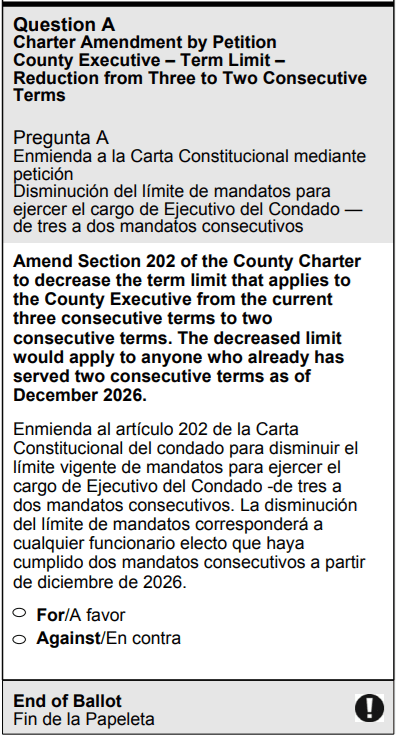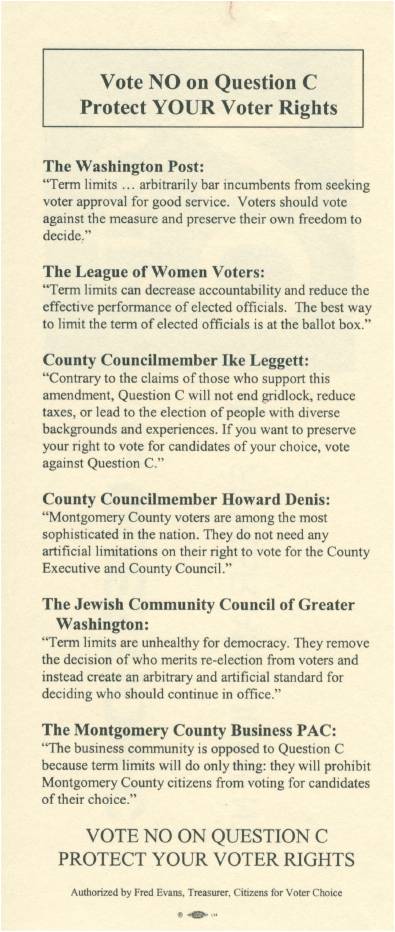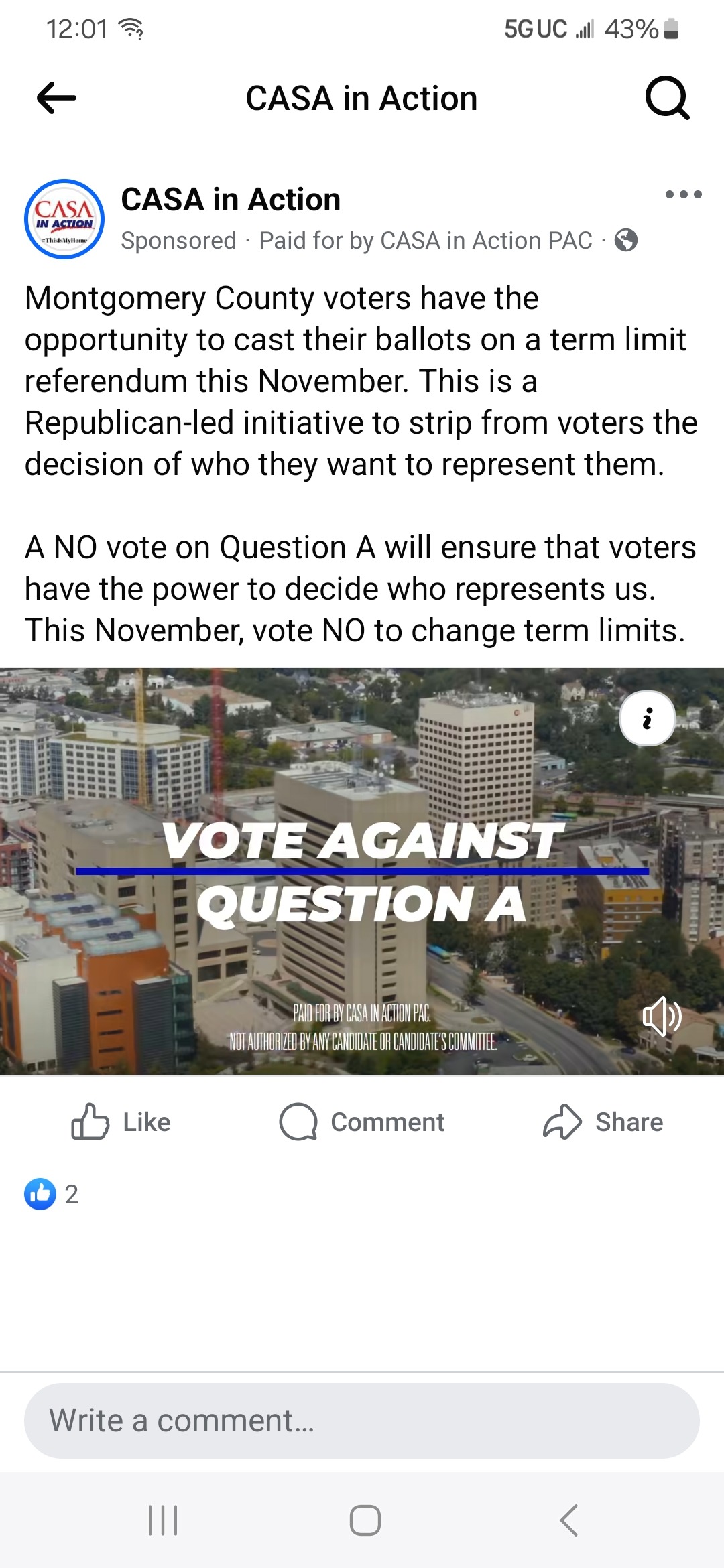By Adam Pagnucco.
As of this writing, roughly two-thirds of voters have approved a charter amendment prohibiting County Executive Marc Elrich from running for a third consecutive term. Elrich has fiercely attacked term limits supporters and is hinting at a run for a different office, possibly on the county council. With precinct results not yet available, what actually happened here?
Elrich has cast term limits as a personal vendetta against him again and again and again. Indeed, I bet his enemies are gleefully celebrating his pending departure from the second floor. But I don’t think the voters saw this exclusively through the prism of keeping or rejecting Elrich. First, term limits poll extremely well at the national level, even among Democrats. And second, the turnout in this year’s general election will likely far exceed a half million MoCo voters, which is significantly more than the 145,762 people who voted in the 2022 Democratic primary or the 346,765 people who voted in the 2022 general election. A lot of this year’s general election voters were focused on the races for president and Congress. How many of them even know who Elrich is?
Let’s also remember this: when term limits first passed in 2016, Ike Leggett – not Elrich – was the county executive.
Elrich has more to say. He is right that the real estate industry, including developers, financed the term limits campaign. Why wouldn’t they? Elrich supports rent control, wants to raise commercial property taxes and opposes plans to loosen zoning rules (like Thrive 2050 and attainable housing). Of course they wanted to get rid of him. As Michael Corleone once said, “It’s not personal, Sonny. It’s strictly business.”
But when Elrich says, “Voters don’t even know we have term limits,” he is contradicted by the plain language of the term limits question that was shown on the ballot (which is reprinted below). Council Member Gabe Albornoz, the author of that language, made sure that every voter could see that the proposal was to reduce term limits for the county executive from three to two.

The actual language of the term limits charter amendment shown on the ballot.
Elrich is saying that voters are too dumb to read their ballots. This is a classic example of a sore loser blaming his defeat on alleged stupidity by the public.
What’s remarkable about the term limits campaign is not the reaction by voters or Elrich being Elrich. It’s how the county’s political community reacted to it. In 2000, County Executive Doug Duncan faced a term limits ballot question authored by notorious political heckler Robin Ficker. Duncan and his fixer, Jerry “Darth Vader” Pasternak, organized a bipartisan coalition of elected officials, unions, the Washington Post editorial board and the business community to oppose it and raised $42,000 for the effort. (That’s the equivalent of more than $70,000 in today’s dollars adjusted for inflation.) Term limits failed by 8 points.

A flyer from the fight against term limits in 2000.
Contrast that to the absolutely pitiful effort waged by Elrich’s defenders this year as they raised a microscopic $3,650 at this writing. That was augmented by token and largely no-cost efforts to help him. Putting opposition to term limits on the Apple Ballot had no marginal cost. Putting it on the Democratic sample ballot had no marginal cost. When elected officials put their names on the anti-term limits website, that had no marginal cost. Did any of these people or groups incur a true marginal cost to help Elrich?
One bit of marginal spending that I can see is a Facebook ad by CASA in Action PAC, which is shown below. According to the Facebook ad library, the group spent between $1,000 and $1,500 on the ad.

CASA in Action PAC’s digital ad against term limits.
Considering that the Elrich administration maintains a host of non-competitive contracts with CASA’s 501(c)(3) organization and has signed a 99-year lease with them for a county building, this is weak stuff indeed!
Duncan was a tough guy who brawled with county council members and feuded with GOP Governor Bob Ehrlich. But he also maintained alliances with business and labor and could be a team player when it suited him, such as when he organized a slate to take over the council. Elrich seems to relish being a loner as he often insults other political players, including power brokers in Annapolis. And so in his time of need, on an issue which almost all Democratic politicians oppose (term limits), he looked around and found few if any who were willing to go to the mat for him.
That is the story of the Fall of Elrich.
